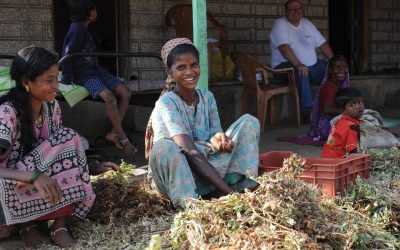Sammi Kinghorn had a clear goal for the 2017 Chicago marathon: finish in two hours and five minutes. For a seasoned wheelchair marathoner, that’s a leisurely time.
But Sammi, an accomplished 22-year-old wheelchair racer, had never competed in a marathon. In fact, she’d never even wheeled 26.2 miles in one go.
So to qualify for the next month’s Commonwealth Games in Queensland, Australia, she needed that 2:05 in Chicago.
A Scot, and an Honorary Member of the Rotary eClub of Southern Scotland, Sammi specialises in shorter distances – and specialises is an understatement.
A relative newcomer to the sport, she holds a world record for the 200-metresprint and European records for the 100, 400, and 800 metres.
But the Commonwealth Games feature a limited schedule of events for para-athletes, and for the 2018 Games, officials hadn’t stated shorter distances for wheelchair racers.
That meant Sammi’s options were the 1500 metres and the marathon. She’d rarely competed at 1500 metres and never even contemplated a marathon.
Nonetheless, Sammi chose to travel to Chicago last autumn and go after the qualifying time for the marathon.
To some, that might seem an impossible challenge. To Sammi Kinghorn, it was business as usual.
Her ascent to the top ranks of world-class wheelchair athletes began with a terrible accident.
In 2010, during an unusually snowy winter, she was helping her father, Neill, with chores at the family farm in south-eastern Scotland. Neill was driving a forklift with a snow-clearing attachment. Sammi was walking in front of the forklift.
I watched a girl going around the track, and she was faster than the runners. I thought, I want to be better than I was before. It attracted me because it didn’t look like a major disability staring me in the face.”
She mischievously jumped onto the front of the forklift, assuming Neill could see her.
“He started to lower the beam down to shovel up snow and I got crushed,” she recalls, her normally cheery voice going very quiet.
“I didn’t pass out at all. I remember feeling like my heart was beating inside my head. I was thinking, I’m going to die and my dad’s going to think he killed me.
“The guilt was the biggest thing I felt. I was thinking, I can’t believe I’ve made this stupid mistake.”
An ambulance rushed Kinghorn to the local hospital; from there she was airlifted to Southern General Hospital in Glasgow.
Doctors determined that she had an irreparable spinal cord injury, which immobilised her from the waist down.
Restless and frustrated, Sammi spent the next six months in rehab. “I was a 14-year-old girl,” she says. “It’s a tough time for any teenager to be going through, never mind having an accident at the same time. I was fiercely independent going in, so I wanted to come out fiercely independent.”
Sammi’s physiotherapist encouraged her to attend an annual event where patients from spinal cord injury units around the United Kingdom can try a variety of different sports. Sammi tried fencing and rugby and basketball, but it was wheelchair racing that stuck.
“I watched a girl going around the track, and she was faster than the runners.
“I thought, I want to be better than I was before. It attracted me because it didn’t look like a major disability staring me in the face.”
Next step: a custom-made racing chair. While Sammi started out racing in an “off-the-shelf” model, serious racers use customised chairs. Her chair cost more than £3,000.
“I was raising money – and speaking very nicely to my mum and dad,” she says with a laugh.
Further upping her game, she started training with Ian Mirfin MBE at the Red Star Athletics Club in Glasgow.
A para-athlete coach for 30 years, Ian recognised Sammi’s potential. “Within a year I realised that Sammi was progressing quickly,” he said.
“To be on top of the world, as she is, after barely five years in the sport is phenomenal and shows her talent, determination, and capacity for hard work.”
Sammi came to Rotary’s notice as a guest speaker at the Rotary eClub of Southern Scotland, an event viewed online by visitors from all over the world. She made such an impression that the club made her an honorary member.
“It’s an honour to have her,” says Nii Boi-Dsane, the club’s President. “A young woman showing grit and determination to overcome tragedy – to become a champion, all the while exuding joy.”
With Ian in her corner and riding her custom-made pink-wheeled chair, Sammi spent 2012 training and competing in a few local races in Scotland. In 2013, she underwent a series of tests that evaluated her bench strength, mobility, and trunk function and determined the class in which she could compete.
It’s complicated, but Sammi fell into the T53 classification. After that, it was off to the races.
Though only 17, Sammi instantly made her presence felt. In 2013 she took home two gold medals at the UK School Games. In 2014 she competed at the Commonwealth Games in Glasgow, and that same year, at the European Championship in Swansea, she won three gold medals.
In 2015 she won bronze in the 200 metres at the World Para Athletics Championships in Doha, Qatar. In 2016 she competed for Team Great Britain in the Paralympic Games in Rio de Janeiro. But despite reaching the finals in the 100, 400, and 800 metre races, she didn’t medal.
In May 2017, however, at the Desert Challenge Games in Arizona, USA, Sammi broke the world record for T53 class athletes for 200 metres. In July, she broke her own record at the World Para Athletics Championships in London, earning gold.
She also took gold in the 100 metres and bronze in the 400 metres.
In late September, she was named Scottish Sportsperson of the Year at the Team Scotland Scottish Sports Awards, the first para-athlete to receive the award.
By then she had set her sights on the marathon in Chicago, scheduled for 8th October, a mere 16 days away.
Sammi had begun preparing for Chicago right after her triumphs in London.
With Ian, she worked on a compressed programme of marathon training, doing long (up to 15-mile) road sessions in the rural, rolling country of the Scottish Borders.
Sky Sports, has selected her as a Sky Sports Scholar. She will receive funding through to 2020, as well as media training, as well as athletic and business mentoring.”
Training twice a day, six days a week, she mixed in shorter track sessions and time in the gym on a wheelchair treadmill that recorded speed variations and mimicked hills and various other real-world terrain.
The mechanics of a wheelchair racer’s stroke are complex. “We’re not gripping and pushing like we do in a day chair,” explains Sammi.
“We punch the push rim, and we have to make sure that we punch it correctly. It’s all about getting the right stroke. You can tire yourself out very quickly if you’re doing the wrong strokes for the distances.”
Sammi’s technique, with powerful strokes and longer contact with the push rim, is unusual among racers in the sprint distances. “Her arm speed is tremendous for sprinting,” notes her coach, “but equally she has a longer push which is more economical and better for distance, making her adaptable.”
The morning of the Chicago marathon, some 40,000 racers crowd near Lake Michigan in Grant Park, where the race starts and finishes.
Before the race, Sammi has her headphones on. “I like listening to Tina Turner singing ‘Simply the Best’,” she says. “I can remember my Mum singing it while vacuuming around the house when I was a child. It’s a distraction. I don’t like to think about what I’m about to do until I’m on the start line, because I get extremely nervous.”
The meticulous preparation works. To qualify for the Commonwealth Games, Sammi needed to finish at 2:05:00. She rolls across the finish line at 1:43:52 for fifth place. She sends off a terse victory Tweet: “Everything hurts.”
With the Chicago race behind her, Sammi’s attention now centres on April’s Commonwealth Games where she hopes to be on the victory rostrum to hear the anthem ‘Flower of Scotland’. She says, “I love to pull on the vest and race for a chance to hear my national anthem.”
That marathon, she says, will definitely be her last. “I’ll do one at the Commonwealth Games, and then never again. I like to see the finish line, so the idea of enduring 26 miles to see it kills me. ”
Sammi can’t make a long-term career out of wheelchair racing. For now, Sky Sports, has selected her as a Sky Sports Scholar. She will receive funding through to 2020, as well as media training, as well as athletic and business mentoring.
Eventually she plans to make the shift from athletics to academics. “Unlike America,” she explains, “we don’t really have a great collegiate wheelchair sports facility.
“Going to school while competing would require going to university and then driving somewhere else for training.
“I don’t think I would handle it very well, so for now I’m concentrating on my training. But eventually I’m going to have to decide what I’m going to do when I have to get a real job. And that’s a bit scary.”
Challenge accepted.
Feature image © Frank Ishman


























































